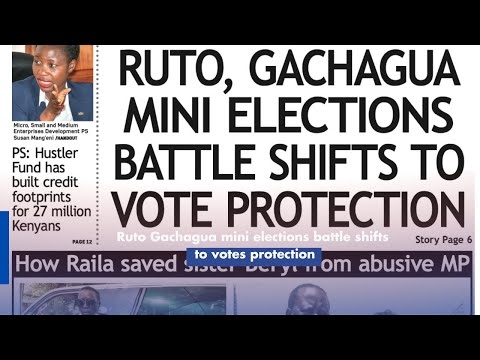Four days into the meteorologists’ forecast month of El Niño deluge, vulnerable citizens are still being advised to relocate to higher grounds. They are being treated like they are birds without fixed abodes or farms.
When El Niño rains land, as predicted, the damages and losses will be huge – probably heavier than previous incidents of local extreme weather events. Flash floods are likely to displace and dispossess vulnerable communities, as has happened before.
Landslides, mudslides and lightning strikes are likely during El Niño rains. Water level rises are expected in rivers, lakes, dams and water pans. Some will overshoot their holding capabilities.
Farms will be swept downstream, leaving in their wake gullies that degrade the environment. The short rains season will probably be longer, and the rains heavier enough to compromise harvests in waterlogged areas.
Cases of water and vector-borne diseases, such as cholera, malaria, Rift Valley and dengue fevers are expected to surge. Overcrowded rescue centres are likely to experience huge challenges, including the spread of infectious diseases.
Damages to infrastructure – roads and bridges – are anticipated. Frequent and longer power outages are expected to intensify if meteorological predictions come to pass.
Local communities and individuals will suffer the ultimate pain from damages and losses, which they cannot, on their own, control. They will suffer the devastation from years of official neglect.
For the umpteenth time in 60 years of perennial losses and damages, residents of flood- and landslide-prone areas are being advised to relocate to safer areas. But none of the official cliched advisories is telling potential victims of forecast El Niño rains who owns the safe havens.
During the peak of the wintry weather of 1997, a desperate mother from Kano Plains, in the Nyando River Basin, made a frantic long-distance call to her son. The son was then working in Nairobi's Industrial Area. The tone of the call was ominous. The son expected the worst, even as he hoped for the best.
Two days earlier, the son had returned to his house in Kibera slum to find mid-afternoon floods had swept away some structures in the sprawling informal city settlement.
His own hovel was missing, except for loosely hanging iron sheets. He could see his neighbours talking and sulking, as they pondered the weight of their floods-induced losses. He sought accommodation with a relative in a neighbouring estate.
The sobbing woman, calling from a public telephone booth in Ahero market, along the Kisumu-Kericho highway, had bad news for her son—the family's breadwinner. River Nyando had gone wild again, unleashing huge quantities of floodwater across Kano Plains.
“My son, we are dead. Our homestead was submerged,” she had started. The son was lost for words, as the mother released deep sobs and staccato breaths of panic. They had had enough destruction from perennial floods.
“Your simba was flattened, only a few iron sheets and the corner poles have been left standing," she had told her son. The son stood there, gasping for breath. He was expecting more reels of losses and damages from the Nyando Basin.
“Your big iron box was found, wide open, trapped between logs on the banks of River Nyando, a kilometre from our homestead,” she had said.
The son kept the originals of his school certificates and other documents in the missing iron box.
“The kitchen coop, the cowshed and the kraal for goats and sheep were destroyed. The four cows you bought for dowry drowned in the floods. Their bodies were swept into River Nyando,” she rounded the message of losses and damages she wanted to pass to her son. The family was then surviving in a rescue centre.
The son said nothing. Nothing he could have said over the telephone would have changed the devastation of his family's losses and damages. This was one of the many incidents that had occurred during his lifetime to many families in the Nyando Basin of Kisumu county.
The son had heard and seen in years gone, cases of people pleading for government intervention. Nothing transformative had happened. Perennial pleas of ‘Serikali Saidia!’ had hit fortified stonewalls of the callous officialdom.
Now, for the umpteenth time, citizens from the Nyando Basin, and other landslide-prone areas, are being advised to relocate – more like birds. The inhumanity of their experiences is more than they can bear. But still, they are saying the government should address local priorities – more urgently now, in the age of climate emergencies.















